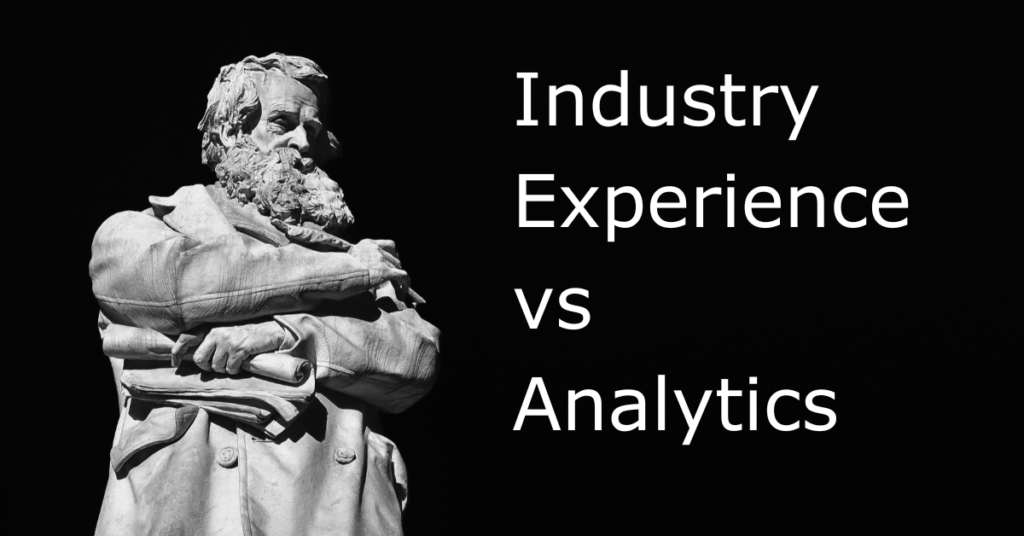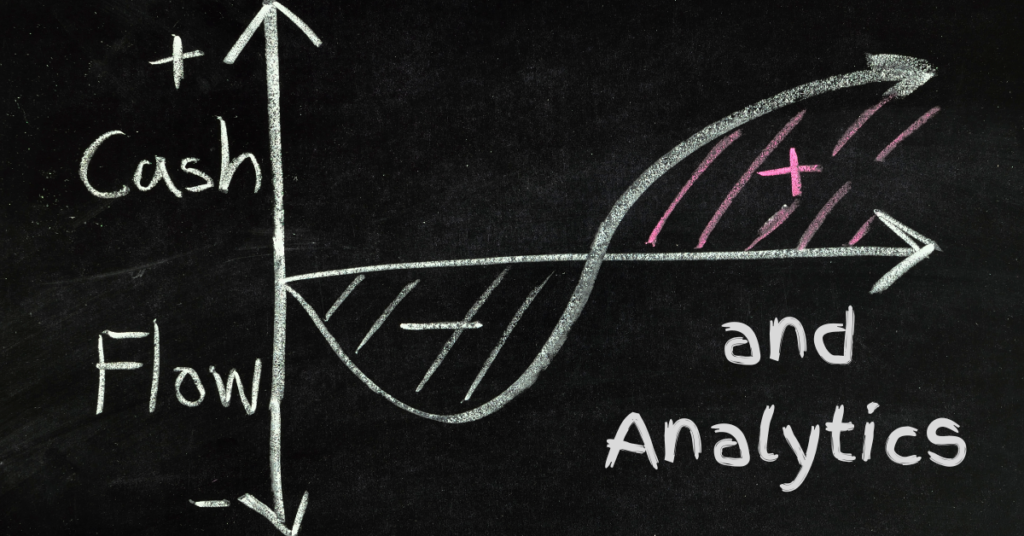Industry experience is worn like a badge of honor for the business professional. The longer you spend in an industry, the deeper your knowledge of its nuances becomes. You understand the differentiation between key players; have your finger on the pulse of industry regulations; and begin to predict industry trends.
With the superpower of your industry experience, why would you ever need analytics for decision-making?
This question is the basis for the misconception I want to tackle today.
Industry Experience Vs Analytics
Business analytics has progressed substantially in the past 20 years. Unfortunately, despite all that progress, many professionals seem convinced that industry experience trumps analytics for decision-making.
Professionals holding this belief are often so convinced they’re right they dismiss any suggestion of adopting data-driven approaches.
Of course, professionals need a certain amount of industry experience for good leadership and management.
However, industry experience and analytics are not competing approaches, but complementary forces.
And your choice to rely on one or the other is not a zero-sum game…there is room for both.
Why is Industry Experience So Heavily Favored?
To be fair, professionals who prefer working from their industry experience are biologically built to do this.
Humans tend to favor industry experience over analytics because of the way our brains are wired.
We prefer quick intuitive decision-making over slower, more deliberate consideration.
When we use our industry experience to make decisions, we give in to our inherent preference for these quick, intuitive decisions.
Analytically based decisions, in contrast, require us to think more carefully about how we are setting up the analysis. What is our outcome? What methodology will we use? Are there any sampling issues we need to consider? How do we interpret the results?
These are only a few of the many questions that require mental effort on our part to use analytics appropriately.
From this comparison, you probably see clearly why we naturally gravitate toward industry experience.
The Problem of Only Using Industry Experience
Again, there is no intrinsic problem with using industry experience to inform our decisions. Experience provides the frame of reference we use for considering problems and selecting potential solutions.
Industry experience is essential.
The problem is with our reliability in viewing and understanding the problems and potential solutions in the first place.
Humans are hard-wired to see patterns. That’s why you can look at a picture of differently colored circles and see a number in one color appear against a background of another color.
The problem is that we often see patterns where there aren’t any patterns – called patternicity by psychologists. This is why you might sometimes think you see images on a television showing nothing but static.
Because we have this propensity for patternicity, we might call into question our ability to accurately perceive, experience, and draw conclusions from our surroundings.
What might appear to be trends in business cycles, or patterns in how customers respond to products or services, might be randomness masquerading as patterns.
Now, I’m not saying that we cannot trust our senses at all. Most of our industry experience and acumen is acquired through experiences that are easy to interpret and verify.
But our past experiences may bias our understanding of the potential for future experiences.
It sure would be great if we had a way to compare our perceptions to something a little more concrete and objective.
This is the role of analytics.
Enhance your Industry Experience
Even if you believe your industry experience is second to none, data analysis will support your intuition in a few important ways.
First, data analysis is not entirely dependent on your industry experience. As long as you use analytics as intended and don’t go cherry-picking results that agree with your perspective, you can get pretty objective answers.
Second, you can use data analysis to confirm or refute your assumptions about business patterns and events. Now, even if your interpretation of patterns is incorrect, you can check yourself.
Third, even if your analysis confirms that your intuition was wrong, that’s a great thing! It means that you now have the information to recalibrate your thinking. You are in a better position to understand the context.
Of course, the quality of your analytic results depends on your data quality. Bad data will lead you to a bad understanding.
Fortunately, data quality isn’t only “good” or “bad”. As long as you understand the potential challenges to your data quality, you can often still answer important questions.
How Much Stronger Would Your Experience Be with Analytics?
By now, you should be seeing how analytics can complement and enhance your industry experience. You’ll always need industry experience to help make critical decisions. However, solid analytics will give you support to confirm assumptions and clarify the context of business patterns.
The best part about embracing analytics on your team and in your decision-making is that once you start, the results you generate filter back into your industry experience and help refine your abilities. You’ll get stronger the more you use it!




